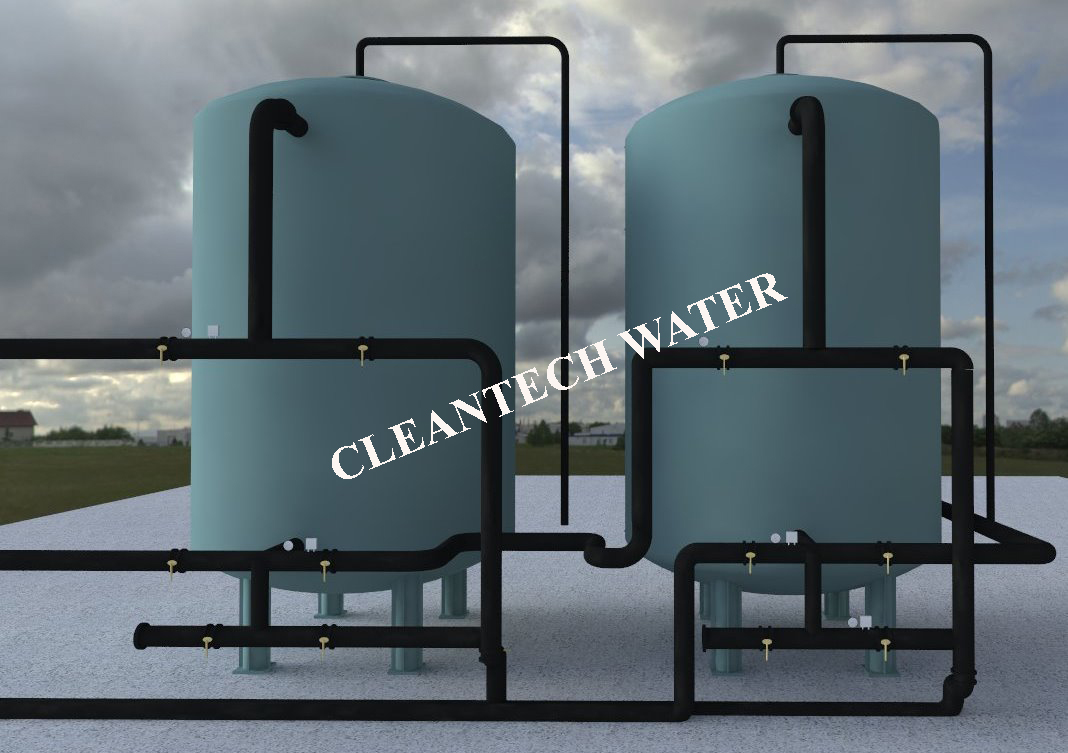Before we understand how a carbon filter works, let us know what a carbon filter is.
What is a Carbon Filter?
A carbon filter is a commonly used filter in water filtration systems. Carbon filters are not just used in water filtration processes. In fact, they are instrumental in refrigerator filters, pitcher filters, shower filters, reverse osmosis water filtration systems, and even whole-house water filtration systems. Carbon filters are an all-purpose cleaner and can be used in various devices for the same purpose.
Carbon filters meant for water filtration processes are made by grinding and mixing a carbon source.
The carbon source can be:
- Peat
- Bituminous coal
- Coconut shells
Of the carbon sources mentioned above, coconut shells are the most commonly used carbon source and are extremely renewable. Activated carbon manufacturers rely on coconut peels for this reason.

How Does the Carbon Filter Function in Water Filtration Processes?
Carbon filters are designed to remove contaminants through the process of absorption. Adsorption means that the contaminants present in water are caught on the surface of activated carbon and get stuck to it. It works similar to a magnet, attracting and holding iron filings.
But that is not all. Carbon filters also behave as a catalyst to alter the chemical composition of specific contaminants. We highly suggest the use of activated carbon filters in your water filtration processes as they are ideal for chlorine removal and other harmful pesticides. Carbon filters also help remove THMs like chloroform, and many VOCs that enter the water through gasoline, industrial cleaners, and other water solvents.
What Are GAC Water Filters?
Granular Activated Carbon, also known as GAC filters, has excellent adsorption capabilities and can eliminate a variety of contaminants from the water in no time.
Granular Activated Carbon filters are commonly used to remove pesticides, VOCs, nitrates, hydrogen sulfide, and other harmful chemicals from water.
Several municipal water treatment plants mix disinfectants like chlorine and chloramine in water. This leaves a weird taste and smell in drinking water making it unfit for consumption. This is where GAC filters come into play. These filters are made to improve the taste and odour of water and are often used in one or two stages during a reverse osmosis system.
How Often Should We Change Activated Carbon Filter?
This is a general question asked by many carbon filter users. For carbon filters utilized in reverse osmosis drinking water systems, you must replace the polishing filter and carbon filter every 6-12 months. Additionally, the condition of your carbon filter highly depends on two factors: a) how well you have maintained it and b) the quality of water that enters your house. These factors are crucial in the determination of the lifespan of your activated carbon filter. Other than this, the carbon quality provided by your activated carbon manufacturer, humidity, and the usage of the filter also decides how long your carbon filter can last.
Are Carbon Filters Safe to Use?
Yes, a hundred times, yes! In fact, almost all the carbon filters that are installed are quality tested, thoroughly checked, and rated by the engineers for material safety. We recommend you trust only reputed activated carbon manufacturers to ensure quality results.
Where to Find Reliable Activated Carbon Manufacturers?
To ensure clean drinking water at your place, hire Cleantech Water staff today! You may have an array of options readily available, but nothing beats the excellence of the products at Cleantech Water plants. Cleantech Water is one of the most reputable and trusted water solutions companies in India. We offer high-quality activated carbon filters and other intelligent solutions to our clients. You can never go wrong with our durable water filters to make life easier. You can mail us at info@cleantechwater.co.in or call us at +91-9558996411. We will be happy to help you out!

